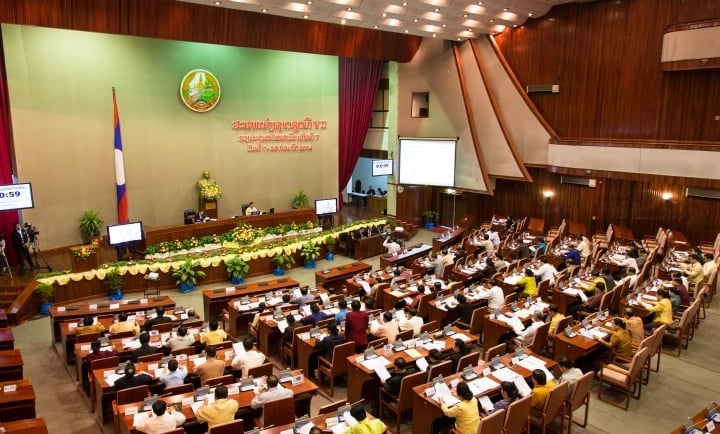Empowering Communities: Laos' New Law on Collectives
A New Era of Community-Driven Development
12/9/2024


Laos has taken a significant step towards fostering community-led development with the recent passage of the Law on Collectives. This groundbreaking legislation aims to empower individuals to form voluntary groups, or collectives, that work together to address shared challenges and opportunities. By providing a legal framework for these collective efforts, the law seeks to strengthen social cohesion, economic growth, and environmental sustainability.
Key Provisions of the Law
The Law on Collectives outlines several key provisions:
Definition of Collectives: The law defines collectives as voluntary groups of individuals who come together to pursue shared interests, such as economic development, social welfare, or environmental conservation.
Types of Collectives: The law recognizes a wide range of collective types, including farmers' cooperatives, women's groups, youth associations, and community-based organizations.
Establishment and Registration: The law establishes clear procedures for the formation and registration of collectives, ensuring transparency and accountability.
Organizational Structure and Governance: Collectives are encouraged to adopt democratic governance structures, with decision-making power vested in their members.
Rights and Obligations: The law outlines the rights and obligations of collectives, including the right to access resources, participate in decision-making processes, and receive support from government agencies.
Dispute Resolution: The law provides mechanisms for resolving disputes within and between collectives, promoting peaceful and equitable solutions.
Government Support: The government is committed to supporting collectives through various means, such as providing technical assistance, financial support, and access to markets.
The Impact of the Law
The Law on Collectives has the potential to transform communities across Laos. By empowering individuals to take ownership of their development, the law can lead to a more equitable and sustainable future. Some of the potential benefits include:
Economic Development: Collectives can create jobs, generate income, and improve livelihoods, particularly in rural areas.
Social Cohesion: By fostering collaboration and solidarity, collectives can strengthen social bonds and reduce social inequalities.
Environmental Protection: Collectives can play a vital role in conserving natural resources and promoting sustainable practices.
Improved Governance: By involving communities in decision-making processes, collectives can enhance transparency and accountability.
Challenges and Opportunities
While the Law on Collectives offers immense potential, there are also challenges to be addressed. These include:
Capacity Building: Many community members may lack the skills and knowledge to effectively organize and manage collectives.
Access to Finance: Collectives may struggle to access the necessary financial resources to implement their projects.
Legal and Regulatory Framework: A supportive legal and regulatory environment is essential for the success of collectives.
To overcome these challenges, it is crucial to provide comprehensive training and technical assistance to community members. Additionally, government agencies should work to create a conducive environment for collective development, including simplifying regulations and providing incentives.
A Brighter Future
The Law on Collectives represents a significant milestone in Laos' development journey. By empowering communities to take the lead, this law can help to build a more prosperous, equitable, and sustainable future for all. As collectives continue to emerge and grow, they will undoubtedly play a vital role in shaping the nation's destiny.
